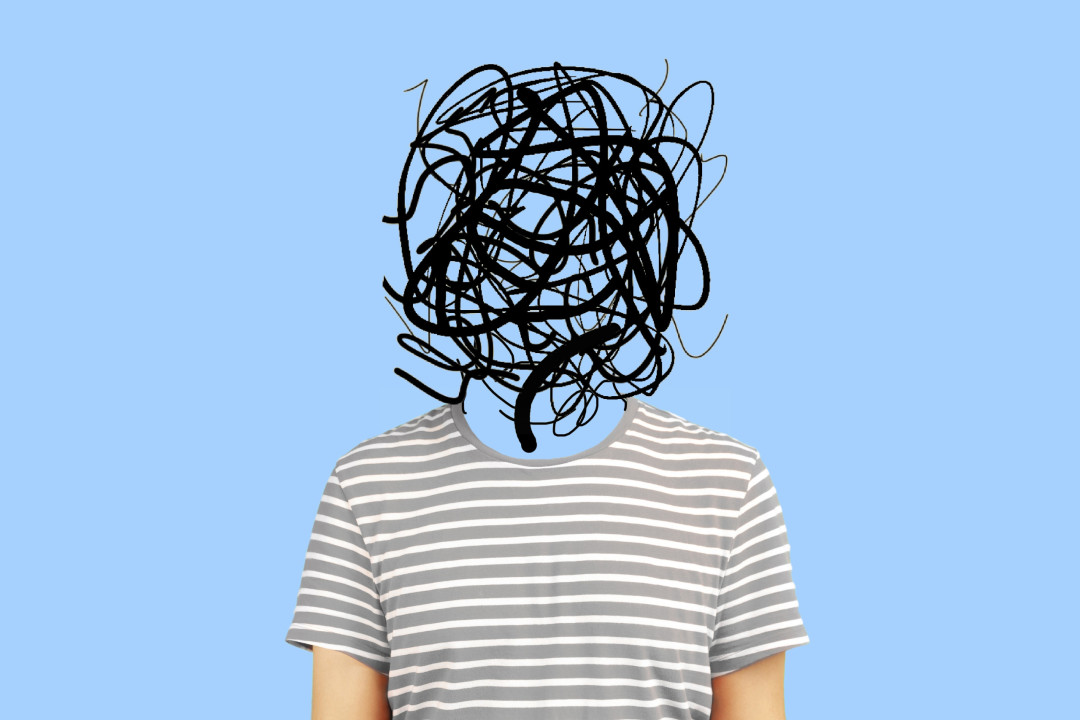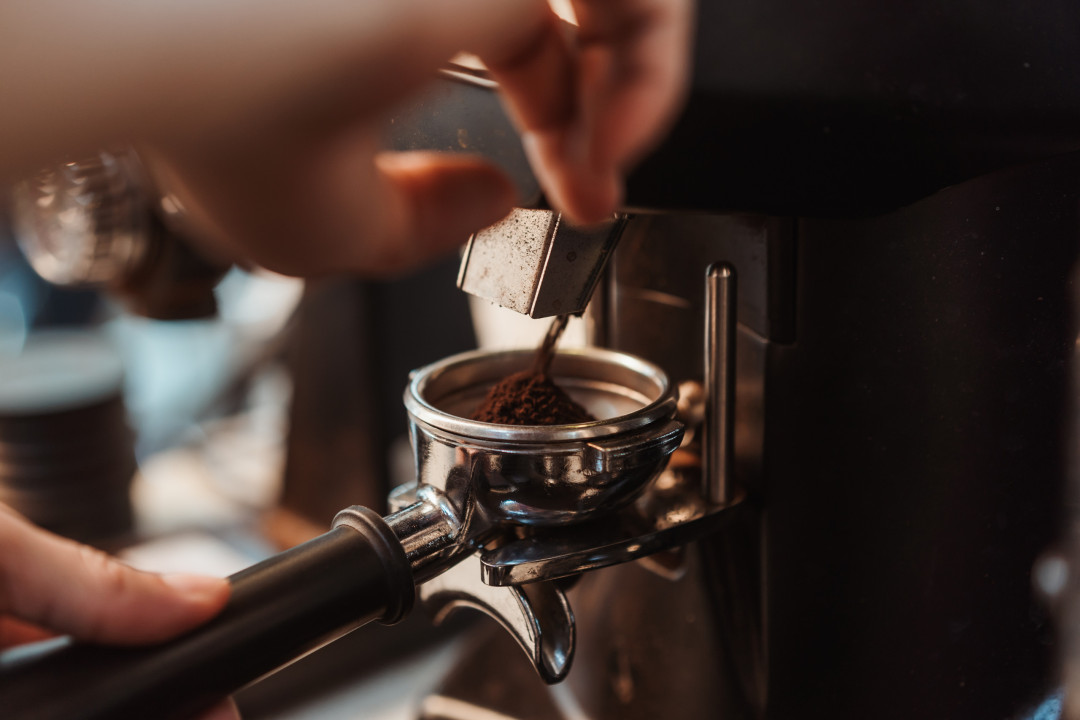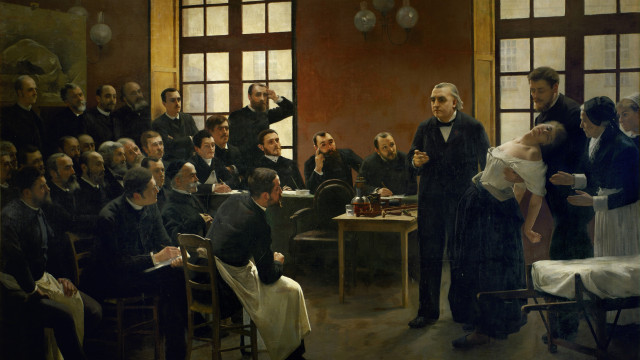






























See Also
See Again
© Shutterstock
0 / 31 Fotos
Reaching for an energy drink
- Energy drinks can be useful if you are looking for a quick energy boost, for example when you need to drive a short distance or finish an urgent task.
© Shutterstock
1 / 31 Fotos
Common misconception
- However, there is a common misconception about energy drinks and the fatigue-reducing ingredients they contain.
© Shutterstock
2 / 31 Fotos
Popular belief
- Many people believe that energy drinks reduce fatigue and boost energy levels because they contain sugar and are good for hydration.
© Shutterstock
3 / 31 Fotos
Packed with stimulants
- In reality, however, the majority of energy drinks are packed full of caffeine and other stimulants that can be dangerous in large quantities.
© Shutterstock
4 / 31 Fotos
Understanding energy drinks
- For this reason, it is important to understand exactly what you are consuming when you indulge in an energy drink, and precisely how it will affect your body.
© Shutterstock
5 / 31 Fotos
Energy drinks vs. sports drinks
- The first important thing to note when it comes to energy drinks is that they are not the same as sports drinks.
© Shutterstock
6 / 31 Fotos
Key distinction
- Indeed, many people think of these beverages as one and the same, but there is an important distinction.
© Shutterstock
7 / 31 Fotos
Sports drinks and electrolytes
- Sports drinks are beverages that contain electrolytes. Athletes use them to replace water and electrolytes that they lose during exercise.
© Shutterstock
8 / 31 Fotos
Possible added sugars
- Sometimes sports drinks will also contain added sugars, but most of the time they are composed of salts and electrolytes alone.
© Shutterstock
9 / 31 Fotos
Energy drinks and stimulants
- The main purpose of energy drinks, on the other hand, is to act as a stimulant. They generally contain large amounts of caffeine, as well as other legal stimulants, such as taurine.
© Shutterstock
10 / 31 Fotos
Important to note
- Although they sometimes also contain electrolytes, energy drinks should never be used to replace fluids and electrolytes lost during exercise.
© Shutterstock
11 / 31 Fotos
Hidden danger
- The main reason that energy drinks are dangerous is that they can cause excessive caffeine consumption.
© Shutterstock
12 / 31 Fotos
Recommended daily dose
- According to the US Food and Drug Administration (FDA), more than 400 mg of caffeine per day is considered excessive for adults.
© Shutterstock
13 / 31 Fotos
Coffee vs. energy drink
- While that equates to around four or five cups of coffee, it may be the equivalent of just one or two cans of an energy drink.
© Shutterstock
14 / 31 Fotos
Always read the label
- Indeed, some energy drinks contain as much as 300 mg in each bottle or can, so it is very important to read the label before you consume one.
© Shutterstock
15 / 31 Fotos
Symptoms
- Excessive caffeine consumption can cause people to become jittery and lead to symptoms such as a rapid heartbeat or anxiety.
© Shutterstock
16 / 31 Fotos
Disrupted sleep
- It can also cause people to have trouble sleeping, which paradoxically increases fatigue over time and makes people more likely to reach for an energy drink!
© Shutterstock
17 / 31 Fotos
The risk of caffeine intoxication
- In cases where a very large amount of caffeine is consumed, a person can even experience caffeine intoxication.
© Shutterstock
18 / 31 Fotos
Potentially fatal
- This is a rare, yet serious condition that can affect the heart’s rhythm. It some cases, it can even be fatal.
© Shutterstock
19 / 31 Fotos
Staying within the limits
- Someone who drinks the threshold amount of 400 mg of caffeine per day is unlikely to experience caffeine intoxication. However, they may experience jitters and problems with their sleep.
© Shutterstock
20 / 31 Fotos
The FDA recommendation - It is very important to note that the FDA recommendation for daily caffeine consumption relates to adults only.
© Shutterstock
21 / 31 Fotos
What about children?
- In the case of children, the recommendation is that they do not consume any drinks that contain caffeine and/or added sugars.
© Shutterstock
22 / 31 Fotos
AAP recommendation
- Indeed, according to the American Academy of Pediatrics (AAP), children and adolescents should not consume energy drinks.
© Shutterstock
23 / 31 Fotos
Other risk groups
- Other groups of people who should steer clear of energy drinks include those with chronic heart problems or high blood pressure.
© Getty Images
24 / 31 Fotos
Interaction with medication
- Caffeine, and by extension energy drinks, can also interfere with certain medications, such as anti-depressants and diabetes medications.
© Shutterstock
25 / 31 Fotos
Other ways to beat fatigue
- If you are in the habit of consuming energy drinks because you rely on the short-term kick they provide, consider that there are other, better ways to reduce fatigue and boost energy levels.
© Shutterstock
26 / 31 Fotos
Make lifestyle changes
- Bear in mind that a simple change to your diet could give you more energy, as could introducing or increasing physical exercise.
© Shutterstock
27 / 31 Fotos
Stay hydrated
- It is also important to make sure you keep hydrated throughout the day, since becoming dehydrated can cause and compound feelings of fatigue.
© Shutterstock
28 / 31 Fotos
When to see a doctor
- If you find that you are suffering from ongoing exhaustion, it may be time to see a professional to find out why.
© Shutterstock
29 / 31 Fotos
When to see a doctor
- Indeed, ongoing exhaustion is sometimes a symptom of an underlying medical issue, such as anemia, hypothyroidism, or sleep apnea. Sources: (CNN) (FDA) (AAP) See also: How do vitamins boost our energy?
© Shutterstock
30 / 31 Fotos
© Shutterstock
0 / 31 Fotos
Reaching for an energy drink
- Energy drinks can be useful if you are looking for a quick energy boost, for example when you need to drive a short distance or finish an urgent task.
© Shutterstock
1 / 31 Fotos
Common misconception
- However, there is a common misconception about energy drinks and the fatigue-reducing ingredients they contain.
© Shutterstock
2 / 31 Fotos
Popular belief
- Many people believe that energy drinks reduce fatigue and boost energy levels because they contain sugar and are good for hydration.
© Shutterstock
3 / 31 Fotos
Packed with stimulants
- In reality, however, the majority of energy drinks are packed full of caffeine and other stimulants that can be dangerous in large quantities.
© Shutterstock
4 / 31 Fotos
Understanding energy drinks
- For this reason, it is important to understand exactly what you are consuming when you indulge in an energy drink, and precisely how it will affect your body.
© Shutterstock
5 / 31 Fotos
Energy drinks vs. sports drinks
- The first important thing to note when it comes to energy drinks is that they are not the same as sports drinks.
© Shutterstock
6 / 31 Fotos
Key distinction
- Indeed, many people think of these beverages as one and the same, but there is an important distinction.
© Shutterstock
7 / 31 Fotos
Sports drinks and electrolytes
- Sports drinks are beverages that contain electrolytes. Athletes use them to replace water and electrolytes that they lose during exercise.
© Shutterstock
8 / 31 Fotos
Possible added sugars
- Sometimes sports drinks will also contain added sugars, but most of the time they are composed of salts and electrolytes alone.
© Shutterstock
9 / 31 Fotos
Energy drinks and stimulants
- The main purpose of energy drinks, on the other hand, is to act as a stimulant. They generally contain large amounts of caffeine, as well as other legal stimulants, such as taurine.
© Shutterstock
10 / 31 Fotos
Important to note
- Although they sometimes also contain electrolytes, energy drinks should never be used to replace fluids and electrolytes lost during exercise.
© Shutterstock
11 / 31 Fotos
Hidden danger
- The main reason that energy drinks are dangerous is that they can cause excessive caffeine consumption.
© Shutterstock
12 / 31 Fotos
Recommended daily dose
- According to the US Food and Drug Administration (FDA), more than 400 mg of caffeine per day is considered excessive for adults.
© Shutterstock
13 / 31 Fotos
Coffee vs. energy drink
- While that equates to around four or five cups of coffee, it may be the equivalent of just one or two cans of an energy drink.
© Shutterstock
14 / 31 Fotos
Always read the label
- Indeed, some energy drinks contain as much as 300 mg in each bottle or can, so it is very important to read the label before you consume one.
© Shutterstock
15 / 31 Fotos
Symptoms
- Excessive caffeine consumption can cause people to become jittery and lead to symptoms such as a rapid heartbeat or anxiety.
© Shutterstock
16 / 31 Fotos
Disrupted sleep
- It can also cause people to have trouble sleeping, which paradoxically increases fatigue over time and makes people more likely to reach for an energy drink!
© Shutterstock
17 / 31 Fotos
The risk of caffeine intoxication
- In cases where a very large amount of caffeine is consumed, a person can even experience caffeine intoxication.
© Shutterstock
18 / 31 Fotos
Potentially fatal
- This is a rare, yet serious condition that can affect the heart’s rhythm. It some cases, it can even be fatal.
© Shutterstock
19 / 31 Fotos
Staying within the limits
- Someone who drinks the threshold amount of 400 mg of caffeine per day is unlikely to experience caffeine intoxication. However, they may experience jitters and problems with their sleep.
© Shutterstock
20 / 31 Fotos
The FDA recommendation - It is very important to note that the FDA recommendation for daily caffeine consumption relates to adults only.
© Shutterstock
21 / 31 Fotos
What about children?
- In the case of children, the recommendation is that they do not consume any drinks that contain caffeine and/or added sugars.
© Shutterstock
22 / 31 Fotos
AAP recommendation
- Indeed, according to the American Academy of Pediatrics (AAP), children and adolescents should not consume energy drinks.
© Shutterstock
23 / 31 Fotos
Other risk groups
- Other groups of people who should steer clear of energy drinks include those with chronic heart problems or high blood pressure.
© Getty Images
24 / 31 Fotos
Interaction with medication
- Caffeine, and by extension energy drinks, can also interfere with certain medications, such as anti-depressants and diabetes medications.
© Shutterstock
25 / 31 Fotos
Other ways to beat fatigue
- If you are in the habit of consuming energy drinks because you rely on the short-term kick they provide, consider that there are other, better ways to reduce fatigue and boost energy levels.
© Shutterstock
26 / 31 Fotos
Make lifestyle changes
- Bear in mind that a simple change to your diet could give you more energy, as could introducing or increasing physical exercise.
© Shutterstock
27 / 31 Fotos
Stay hydrated
- It is also important to make sure you keep hydrated throughout the day, since becoming dehydrated can cause and compound feelings of fatigue.
© Shutterstock
28 / 31 Fotos
When to see a doctor
- If you find that you are suffering from ongoing exhaustion, it may be time to see a professional to find out why.
© Shutterstock
29 / 31 Fotos
When to see a doctor
- Indeed, ongoing exhaustion is sometimes a symptom of an underlying medical issue, such as anemia, hypothyroidism, or sleep apnea. Sources: (CNN) (FDA) (AAP) See also: How do vitamins boost our energy?
© Shutterstock
30 / 31 Fotos
Understanding the impact of energy drinks on your body
The hidden dangers of those caffeine-filled beverages
© Shutterstock
When it comes to energy drinks, there is a commonly-held belief that they are pretty much the same as sports drinks. But this could not be further from the truth. While both drinks may have energizing properties, sports drinks are packed with electrolytes, whereas energy drinks usually only offer stimulants, such as caffeine and taurine. Indeed, with as much as 300 mg of caffeine per can, drinking too many energy drinks can wreak havoc on the body.
Curious? Check out this gallery to find out more.
RECOMMENDED FOR YOU






























MOST READ
- Last Hour
- Last Day
- Last Week








